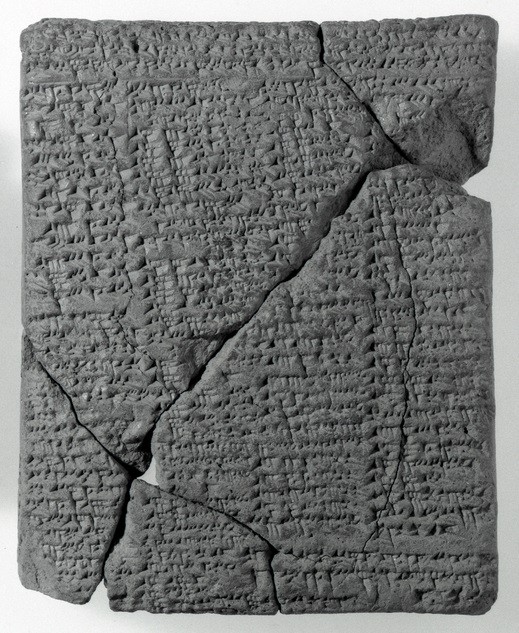By Ana Verayo, | December 08, 2016

A Babylonian clay tablet, measuring 10 cm × 12.5 cm, containing a description of a total eclipse of the Sun visible from Babylon in 136 BC. (British Museum/HM Nautic)
Scientists have revealed that the Earth's rotation is slowing down, making days longer by 1.8 milliseconds for every century, according to a new study, also suggesting that there will be 25 hour days in the future.
Like Us on Facebook
A team from the University of Durham and the HM Nautical Almanac Office re-examined ancient records from Greek, Babylonian, Arab, and Chinese civilizations and investigated eclipses from 720 B.C.E. Scientists have long known that the planet's spin is gradually slowing down. They revealed that 4.5 billion years ago when the Earth was still forming, one day was just six hours long.
During the time of dinosaurs some 200 million years ago, the day gradually increased in hours becoming 23 hours and some 200 million years from now, one day will become 25 hours long.
In this new study, researchers sought to understand why Earth's rotation has become erratic over the last 2,700 years and why our planet is slowing down.
From the locations of ancient eclipses in Babylonian calendars and records to the ancient texts of China, Greece, the Fertile Crescent and Medieval Europe, the team produced the most comprehensive list of observations that compares and studies the Earth's rotation rate since 720 B.C.E.
Using a new computer model, the researchers compared these eclipse records from thousands of years ago and calculated the Earth's rotation if the planet's rotation rate never changed. They found that the planet's spin is slowing down by 1.8 milliseconds every century.
The researchers then identified how tidal forces are slowing down the rotation of Earth. How do the ocean tides slow down Earth's spin? Our planet spins faster than the Moon while orbiting Earth and this causes a tidal bulge. This tidal bulge slows down Earth as it spins, at 1.8 milliseconds for every 100 years.
This new finding is crucial to understand how Earth's geological processes are pivotal to the planet's rotation. The team concludes that obtaining measurements of the planet's rotation from 720 B.C.E. to 2015 C.E. can be used as a basis for future work on post-glacial rebound and core-mantle coupling, which are invoked during tidal friction.
These new findings are detailed in the journal, Proceedings of the Royal Society A.
-
Use of Coronavirus Pandemic Drones Raises Privacy Concerns: Drones Spread Fear, Local Officials Say

-
Coronavirus Hampers The Delivery Of Lockheed Martin F-35 Stealth Fighters For 2020

-
Instagram Speeds Up Plans to Add Account Memorialization Feature Due to COVID-19 Deaths

-
NASA: Perseverance Plans to Bring 'Mars Rock' to Earth in 2031

-
600 Dead And 3,000 In The Hospital as Iranians Believed Drinking High-Concentrations of Alcohol Can Cure The Coronavirus

-
600 Dead And 3,000 In The Hospital as Iranians Believed Drinking High-Concentrations of Alcohol Can Cure The Coronavirus

-
COVID-19: Doctors, Nurses Use Virtual Reality to Learn New Skills in Treating Coronavirus Patients







